The untold plight of young medical professionals over paltry pay

The decision by postgraduate trainee doctors to resume their work from July 22 came as a relief for patients. The indefinite strike by the Postgraduate Private Trainee Doctors Association was called from July 8, 2023. However, the ceasefire between the association and the authorities seems like a temporary adjustment, since many of the pressing issues facing the trainee doctors are likely to resurface.
For context, the postgraduate trainee doctors' group consists of around 10,000 trainee doctors who serve in some 30 government healthcare facilities across Bangladesh, and are pursuing their higher studies under Bangabandhu Sheikh Mujib Medical University (BSMMU) and Bangladesh College of Physicians and Surgeons (BCPS). Their demands included an allowance hike to a minimum of Tk 50,000 (up from the current Tk 20,000), regular payment of allowance, and uninterrupted private practice, among others. The trainee doctors claimed that they had to call the strike as a last resort, after campaigning for more than six months and having reached out to various relevant bodies such as the BCPS, BSMMU, Bangladesh Medical Association (BMA), and Swadhinata Chikitsak Parishad (Swachip).
According to the president of the Postgraduate Private Trainee Doctors Association, Dr Jabir Hossain, Bangladesh pays the lowest such allowance in Asia: in India it is Rs 1,50,000; in Pakistan around Rs 75,000. Dr Hossain also said that trainee doctors in Singapore get an equivalent of Tk 2,50,000 as allowance. Of course, in comparison, the Tk 20,000 that Bangladeshi trainee doctors get is meagre.
Unfortunately, the allowance is also paltry when looked at from an economic perspective. A medical student can only apply to be a postgraduate trainee doctor after completing their MBBS, which in itself is a six-year programme, including a one-year internship. By the time doctors can apply for this, they are in their mid-20s. This often means they feel obligated to not only become self-reliant, but also contribute to household expenses. In a country plagued by a high inflation rate of nearly 10 percent, how can it be expected of postgraduate trainee doctors to live a dignified life on an allowance of only Tk 20,000 per month? And that, too, is not paid to them regularly.
The dire financial condition of young medical professionals also came to light earlier this year, when a local daily reported that around 1,500 non-resident diploma doctors of BSMMU had not been paid their monthly allowance for more than nine months since June 2022. In these situations, doctors have to eat into their savings or borrow money to pay for their education, according to the report.
In a country plagued by a high inflation rate of nearly 10 percent, how can it be expected of postgraduate trainee doctors to live a dignified life on an allowance of only Tk 20,000 per month? And that, too, is not paid to them regularly.
The BSMMU vice-chancellor wrote to the health ministry on November 11, 2022 requesting a budget of Tk 36 crore to pay the allowance of non-resident doctors. On December 20, 2022 – nearly a month and a half later – the ministry responded by saying that Tk 34 crore has been entered into the Integrated Budget and Accounting System (iBAS) for allowance payment of resident doctors for FY 2022-23. By March, according to the VC, they had not received the allowance as requested. In fact, the ministry queried why BSMMU was asking for additional funds for the same purpose. The arrears for non-resident doctors were finally paid on June 21. The question then arises: are health ministry officials not aware of the difference between resident and non-resident doctors? Then again, in a ministry that provides ample opportunities for lining one's pockets through easier means, can one really expect officials to notice the non-payment of student doctors' allowances? The deeply entrenched corruption in the health sector has been amply revealed in many recent evidence-based reports. Interestingly, the High Court also directed both the health ministry and the BSMMU to clear the dues within 60 days. But this happened in early July, against a public interest litigation writ petition filed by Supreme Court lawyer Md Monir Uddin back in June.
Trainee doctors in Bangladesh's healthcare institutions are expected to shoulder significant workloads, put in long hours, and efficiently provide healthcare services to patients. This is in addition to their academic duties of studying, sitting for exams, working on research and so on. On top of all this, if the doctors have to also worry about their sustenance, how can they be expected to serve people well or do justice to their profession and education?
Ideally, since authorities are unable to pay doctors adequate allowances, they should be allowed to practise outside working hours. And this is something that authorities recently presented as a mitigation measure in the face of the strike. But the point remains: why did it take a strike for authorities to grant this to trainee doctors?
Moreover, the authorities have raised the allowance from Tk 20,000 to Tk 25,000. For comparison, a management trainee at any reputable organisation in the private sector makes at least Tk 40,000, or as high as Tk 80,000-90,000, given the nature and salary structure of specific organisations. But it is as if the trainee doctors are being punished for choosing the medical profession, given the meagre pay they are being offered even after striking. Also, is there a guarantee that the doctors will be paid their allowance on a regular basis from now on?
The lives of postgraduate trainee doctors and young medical professionals in general are riddled with struggles. While some people and authorities put the blame on them for calling a strike or staging a protest for their rights, no one acknowledges the circumstances that push them to the brink.
While the ceasefire is holding for now, authorities should revisit the allowance structure for these doctors and pay them an amount that would enable them to lead dignified lives. Given the current economic reality, making do with Tk 25,000 (for living and education expenses) is far from feasible. It could only be a matter of time before the doctors have to resort to demonstrating again. And to avoid this, their allowance structure should be upgraded. How can we expect our doctors to provide world-class, flawless medical services to the patients if they are forced to remain mentally occupied by their own financial worries?
Tasneem Tayeb is a columnist for The Daily Star. Her Twitter handle is @tasneem_tayeb

 For all latest news, follow The Daily Star's Google News channel.
For all latest news, follow The Daily Star's Google News channel. 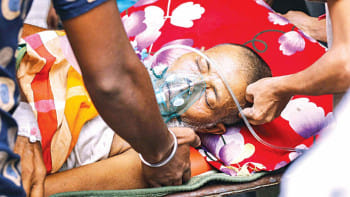
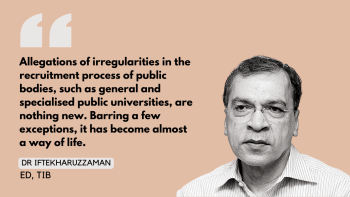



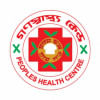
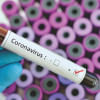

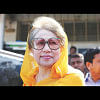


Comments